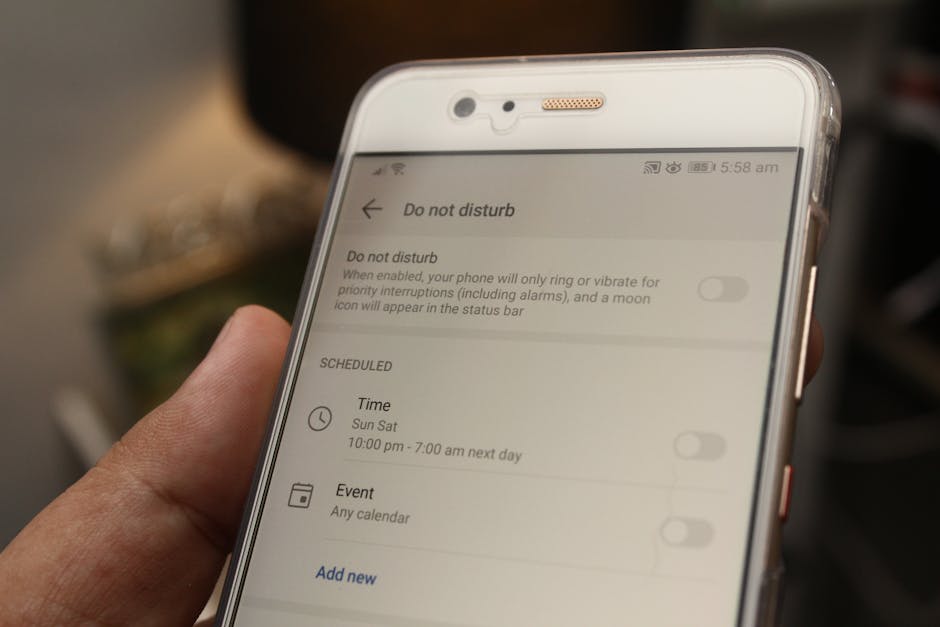App Functionality is constantly evolving, pushing the boundaries of what’s possible on our smartphones and tablets. Looking ahead to 2025, it’s clear that users will expect even more seamless, intuitive, and personalized experiences. This article delves into the key trends, best practices, and actionable advice for building apps with outstanding functionality that will thrive in the competitive mobile landscape of the future. We’ll explore everything from AI-powered features to enhanced security measures, ensuring your app stands out from the crowd.
The Evolving Landscape of App Functionality in 2025
The demands on app functionality are increasing exponentially. Users are no longer satisfied with basic features; they crave innovative solutions that address their specific needs and simplify their lives. This shift is driven by advancements in technology, changing user behaviors, and the increasing saturation of the app market.
To succeed in 2025, developers must prioritize user experience, integrate cutting-edge technologies, and continuously adapt to the evolving mobile landscape. Understanding these key drivers is critical for building apps that not only meet but exceed user expectations.
Key Trends Shaping App Functionality
Several key trends are already shaping the future of app functionality. By 2025, these trends will be even more pronounced, influencing how apps are designed, developed, and used.
- Artificial Intelligence (AI) and Machine Learning (ML): AI-powered features, such as personalized recommendations, predictive analytics, and intelligent chatbots, will become standard expectations.
- Augmented Reality (AR) and Virtual Reality (VR): Apps will increasingly leverage AR and VR technologies to create immersive and interactive experiences, transforming how users interact with the digital world.
- Internet of Things (IoT) Integration: Seamless integration with IoT devices will allow apps to control and monitor various aspects of users’ lives, from smart home devices to wearable technology.
- 5G Connectivity: The widespread adoption of 5G will enable faster data transfer rates, lower latency, and improved performance, unlocking new possibilities for app functionality.
- Enhanced Security and Privacy: As data breaches become more prevalent, users will demand stronger security measures and greater control over their personal information.
User Expectations and the Demand for Personalization
Users now expect apps to be highly personalized, anticipating their needs and adapting to their preferences. Generic experiences are no longer acceptable; apps must provide customized content, recommendations, and interfaces.
Personalization extends beyond simply displaying a user’s name or offering tailored product suggestions. It involves leveraging data to understand user behavior, predict future actions, and create truly unique and relevant experiences.
Developing Future-Proof App Functionality
Building apps with future-proof functionality requires a strategic approach that considers both current trends and emerging technologies. Developers must focus on creating flexible, scalable, and adaptable solutions that can evolve with the changing mobile landscape.
This section outlines key strategies for developing apps that are not only functional today but also prepared for the challenges and opportunities of tomorrow.
Prioritizing User Experience (UX)
User experience is paramount. An app’s functionality is only as good as its usability. A seamless, intuitive, and engaging UX is essential for attracting and retaining users.
- Conduct thorough user research: Understand your target audience’s needs, preferences, and pain points.
- Design intuitive interfaces: Ensure that your app is easy to navigate and use, even for first-time users.
- Optimize for performance: Minimize loading times and ensure smooth transitions between screens.
- Gather user feedback: Continuously solicit feedback and iterate on your design to improve the user experience.
Leveraging AI and ML for Enhanced Functionality
Artificial intelligence and machine learning offer powerful tools for enhancing app functionality. From personalized recommendations to intelligent chatbots, AI and ML can significantly improve the user experience.
For instance, consider a travel app that uses AI to predict flight delays and suggest alternative routes based on real-time traffic data. Another example is a fitness app that leverages ML to personalize workout plans based on a user’s fitness level and goals. Or you can checkout what The New York Times says about the new AI technology.
Embracing Augmented and Virtual Reality
AR and VR technologies are transforming how users interact with the digital world. Apps that leverage AR and VR can offer immersive and interactive experiences that go beyond traditional mobile interactions.
Imagine an e-commerce app that allows users to virtually “try on” clothes using AR or a learning app that uses VR to create immersive educational experiences. These technologies are poised to revolutionize various industries, from retail to education to healthcare.
Integrating with the Internet of Things (IoT)
The Internet of Things is connecting devices and systems in unprecedented ways. Apps that integrate with IoT devices can offer users greater control and convenience over their lives.
For example, a smart home app can allow users to control lighting, temperature, and security systems from their smartphones. Similarly, a healthcare app can integrate with wearable devices to monitor vital signs and provide personalized health recommendations.
In the realm of innovation and technological advancement, the role of Mobile App Development Company becomes crucial. These companies are the architects of the digital future, blending creativity with technical expertise to craft applications that redefine how we interact with the world.
Ensuring Security and Privacy
Security and privacy are paramount concerns in the digital age. Users are increasingly aware of the risks associated with data breaches and are demanding stronger security measures from app developers.
- Implement robust security protocols: Protect user data with encryption, secure authentication methods, and regular security audits.
- Comply with privacy regulations: Adhere to relevant privacy regulations, such as GDPR and CCPA.
- Be transparent with users: Clearly communicate how you collect, use, and protect their data.
- Provide users with control: Allow users to manage their privacy settings and control the data they share.
Actionable Advice for App Developers
Developing successful apps with outstanding functionality requires a combination of technical expertise, creative vision, and a deep understanding of user needs. This section provides actionable advice for app developers looking to create apps that thrive in the competitive mobile landscape.
Focus on Niche Markets
Instead of trying to build a generic app that appeals to everyone, focus on a specific niche market with underserved needs. By targeting a specific audience, you can create a more focused and relevant app that stands out from the competition. Also check what BBC is saying about digital technology.
Embrace Agile Development Methodologies
Agile development methodologies allow you to iterate quickly and adapt to changing requirements. By breaking down your project into smaller, manageable sprints, you can continuously refine your app based on user feedback and market trends.
Stay Up-to-Date with the Latest Technologies
The mobile landscape is constantly evolving, so it’s essential to stay up-to-date with the latest technologies and trends. Attend industry events, read relevant publications, and experiment with new tools and frameworks to ensure that your app is cutting-edge.
Monitor App Performance and User Behavior
Continuously monitor your app’s performance and user behavior to identify areas for improvement. Use analytics tools to track key metrics, such as user engagement, retention rates, and crash reports. This data will help you optimize your app for maximum performance and user satisfaction.
Iterate and Improve
App development is an ongoing process. Don’t be afraid to iterate on your design, add new features, and address user feedback. Continuously improving your app is essential for maintaining user engagement and staying ahead of the competition.
FAQ – App Functionality in 2025
Here are some frequently asked questions about app functionality in 2025, addressing key concerns and providing clarity on the evolving mobile landscape.
What role will AI play in app functionality in 2025?
AI will be integral. Apps will utilize AI for personalized experiences, predictive capabilities, enhanced security, and intelligent automation, revolutionizing user interaction and problem-solving within apps.
How important is security and privacy for app functionality in 2025?
Critically important. Users will demand stringent security measures and transparency regarding data handling. App functionality must prioritize user privacy to build trust and ensure regulatory compliance.
What is the future of AR and VR in relation to app functionality?
AR and VR will create immersive and interactive app experiences. From virtual try-ons in e-commerce to engaging educational tools, these technologies will reshape how users interact with apps.
How will 5G impact app functionality?
5G’s high speeds and low latency will enable richer, more responsive app experiences. This includes seamless streaming, enhanced AR/VR capabilities, and faster data transfer, unlocking new possibilities for app functionality.
What are the key considerations for developers building future-proof app functionality?
Prioritize UX, leverage AI/ML, embrace AR/VR, integrate IoT, ensure security, and remain adaptable. Developers must focus on creating flexible, scalable apps that evolve with the changing mobile landscape.
Conclusion
App Functionality in 2025 will be defined by personalization, intelligence, and seamless integration with emerging technologies. By embracing these trends and following the actionable advice outlined in this article, developers can create apps that not only meet the demands of today’s users but also thrive in the competitive mobile landscape of the future. Focusing on the key aspects of user experience, AI, and security, developers can make significant strides. Remember that the future of app functionality is in innovation, adaptation, and an unwavering commitment to user satisfaction.

















